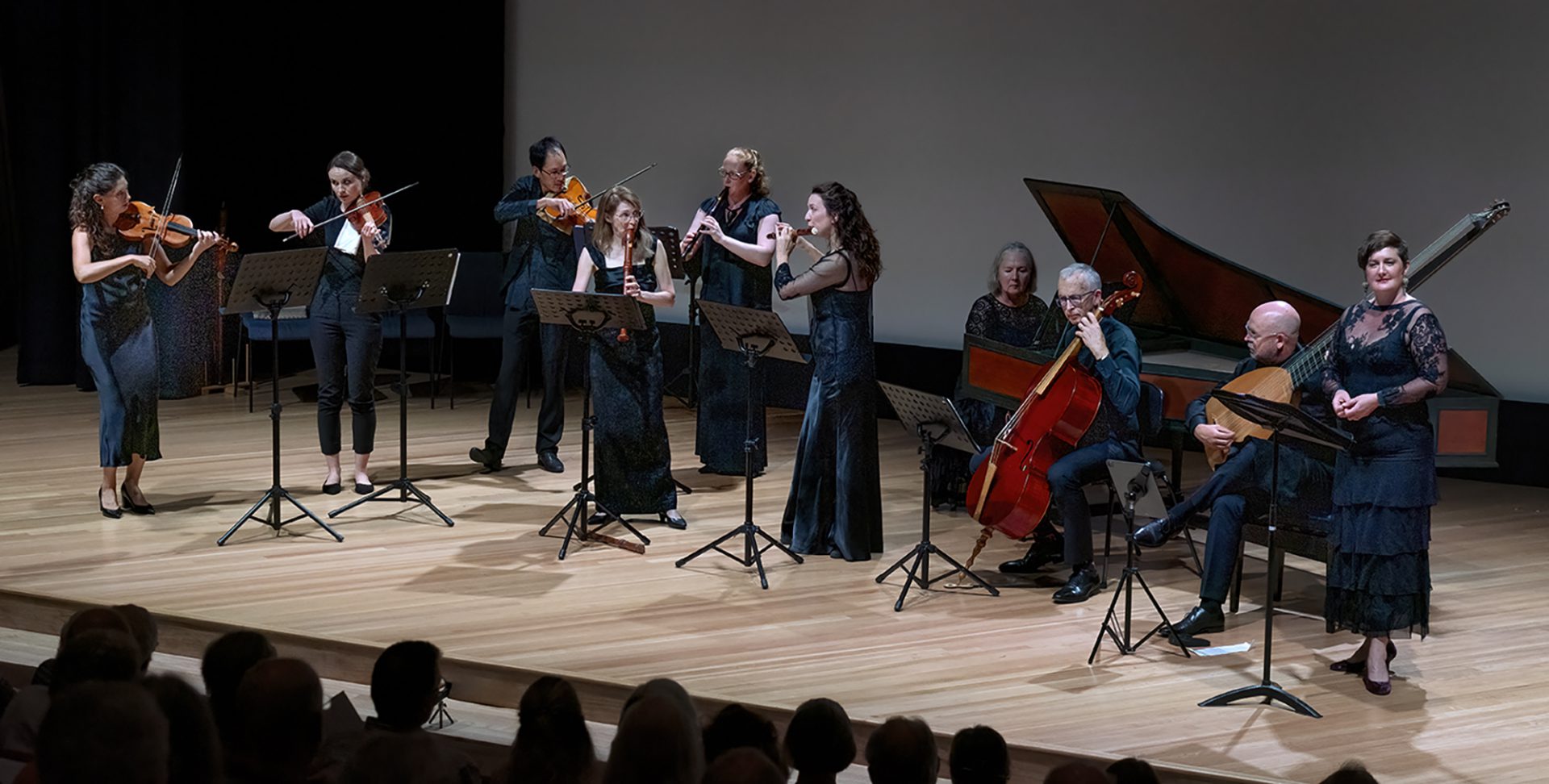Salut Baroque’s latest concert, styled The Genius, was another tour de force of early music – from Renaissance madrigals, to lush North German cantatas and High Baroque concerti.
This was a particularly well-curated concert program, and it selected some of the best gems – and the real showstoppers – of the Baroque.
First was Buxtehude’s cantata Herr, wenn ich nur dich habe. It begins with an optimistic upward-reaching declamation by Anna Fraser as soprano. What emerges is a distinctive theme played by Tim Blomfield on bass violin, which becomes the basis for a gradually unfurling chaconne. It has all the hallmarks of the North German cantatas of Buxtehude’s time – a fluttering dialogue between strings with voice overlaid to give a lush, almost meditative, sensory effect. Reincken’s Hortus Musicus was the other side of the same coin. It was the darker side of the North German repertory, but features the same Buxtehude-like flights of fancy and rapid turns of character separated by resounding notes on the theorbo, played by Simon Martyn-Ellis. Meg Cohen ascends into a fiery inferno on Baroque violin, with even more fantasia-like passages. The toe-tapping fugue was dense and difficult, and the allemande was performed at a fast tempo, which was good because it brought out the dance quality of the movement.
Telemann’s Overture Suite in F minor, TWV 55:f1 forms part of a collection of concerti he rather unassumingly called “Tafelmusik”. But this is no mere divertimenti. The Plainte is, as its French title suggests, melancholy and brooding. The Chaconne is lively and diverse. It features a few spirited question-and-answer passages between recorders, played by Sally Melhuish and Alana Blackburn.
Sticking to the Plainte theme is Bach’s Aus Liebe will mein Heiland sterben. It is a daring piece to perform on what is otherwise a light Sunday afternoon concert. The stage is laid bare, with only Melhuish and Blackburn on recorder and Fraser as soprano. The recorder accompaniment was well-performed. The falling chromaticisms in that accompaniment leaves a devastating effect. It never gets old. Fraser’s performance was heartfelt and her voice powerful. But it seemed at times that the strength of her projection was suited to the larger opera hall.
In fitting sequence, Johann Christian Bach was next. He was known as the London Bach, and this was made clear with the piece that was selected – In This Shady Blest Retreat. It features all the jaunty English folkishness one would expect from a ditty from his Vauxhall Songs. Fraser’s voice was sublime here and it seems the versatility and clarity of her voice is made for this type of music. A nice touch was the staccato step-like passages for violin that accompanied the words ‘welcome feet’.
One of the highlights of the concert was the soprano aria from Caldara’s In lagrime stemprato il cor qui cade. This is an elegant piece – disarmingly simple in design (it is as though the words are being spoken, not sung) but remarkably profound in emotional effect. The beating strings convey the languid stemprato of the title, and Fraser’s voice brought the heart-rending lagrime in abundance. Another highlight was Monteverdi’s famous madrigal Lamento della Ninfa. This was, in turns, joy and pain. Monteverdi throws the book at the text here. Rhetorical tactics abound – tremolos to depict anguish and of course the melancholy falling fourth. Creatively, the ensemble substituted a trio of recorders and Blackburn on bassoon for the customary accompanying male voices.
Special mention should also be made of Chad Kelly on harpsichord, who substituted for Monica Kornel on short notice. He made informed and tasteful continuo improvisations, and a highlight was the glassy arpeggios that fittingly accompanied the word “fliegenden” in Keiser’s Ihr fliegender Sänger from his opera Orpheus.
This was all rounded off with selections from the second of Bach’s Orchestral Suites. There were some slips in timing for the Badinerie, but it was played at such a feverishly high pace that the overall effect was one of exhilaration, and awe at Walker’s virtuosity on baroque flute.
